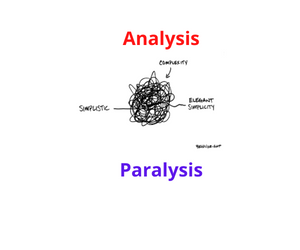Infrastructure. What does that mean? It feels like something that is intangible. I am lucky enough to live in Switzerland, where infrastructure is actually something really tangible, whose value you experience every day. Public transport works, the schools work and kids have various routes to getting a very good education, we have fibre and broadband and so on. The processes supporting the community work. A lot to be grateful for.
I am a process guy, so as well as appreciating how well organised Switzerland is, I have a deep interest in the infrastructure in the industry I work in; Financial Services. I have highlighted some views on matters infrastructure in an earlier post. In my mind, good infrastructure has three ingredients: coordination, co-operation and consensus.
Those three items serve as a good base to highlight some select infrastructure projects that I think are worth knowing about.
Coordination
Left to its own devices, the free market and its guiding capitalist principals will not necessarily make all the right things happen. The free market needs a solid framework to operate in. For a longer read and some very thoughtful commentary on the role of government vs. the free market, I recommend Robert Reich’s Saving Capitalism .
Central coordination, or at least initiative, is often the vital impetus to help the market develop new services. Here in Switzerland, the federal government is hard at work, hand-in-hand with the private sector to create an electronic identity (E-ID) that is valid nationally and internationally, for more click here.
In Singapore, the government is making its data repository available to the private sector. Local bank OCBC is working to use this service to massively streamline the whole account opening process.
Now imagine how powerful the combination of both those capabilities will one day be; if I wanted to open a bank account for myself or my company in London, I could simply use my E-ID to authorise the Swiss data repository to share my details with the bank in London. Simples.
Co-operation
Up in Northern Europe, the Nordic banks are working together to have a shared KYC utility. Personally, I think that excellence in matters KYC will give a financial institution a competitive advantage. That said, I can see a place for a utility that collects data centrally and makes it available to its sponsors on demand. The banks involved though must not delude themselves into thinking that the utility is the global panacea for all ills. How they store, validate & manage data in their own systems is and will remain a major challenge.
Consensus
Italy is not normally associated with fantastic administration. In spite of that legacy, or perhaps to spite it, the Italian Bankers’ Association is coordinating the local banking community in an effort to use the Blockchain for inter-bank reconciliation.
I don’t have any details, but this is worth keeping an eye on, because it seems to offer a potential alternative to the current combination of SWIFT & reconciliation systems most banks use for reconciliations. That combo has done pretty well on end-of-day reconciliations. Now, there is a need to move to an intraday discipline. The DLT / Blockchain approach has great promise; it could make it easier for me to compare my ledger with the ledger at a another institution.
Lessons to be Learned
Infrastructure is the great enabler.
Great infrastructure does not happen by accident. It needs co-ordination, co-operation and consensus. Sometime, the market alone will not solve the challenge; governments and industry bodies have a role to play to shape the future by coordinating strategy.
About the Author: The Bankers’ Plumber. I help banks and FinTechs master their processing; optimising control, capacity and cost.
If it exists and is not working, I analyse it, design optimised processes and guide the work to get to optimal. If there is a new product or business, I work to identify the target operating model and design the business architecture to deliver those optimal processes and the customer experience.
I am an expert-generalist in FS matters. I understand the full front-to-back and end-to-end impact of what we do in banks. That allows me to build the best processes for my clients; ones that deliver on the three key dimensions of Operations: control, capacity and cost.
Previous Posts
Are available on the 3C Advisory website, click here.
Publications
The Bankers’ Plumber’s Handbook
Control in banks. How to do operations properly.
For some in the FS world, it is too late. For most, understanding how to make things work properly is a good investment of their time.
My book tries to make it easy for you and includes a collection of real life, true stories from 30 years of adventures in banking around the world. True tales of Goldman Sachs and collecting money from the mob, losing $2m of the partners’ money and still keeping my job and keeping an eye on traders with evil intentions.
So you might like the tool kit, you might like the stories or you might only like the glossary, which one of my friends kindly said was worth the price of the book on its own. Or, you might like all of it.
Go ahead, get your copy!
Hard Copy via Create Space: Click here
Kindle version and hard copy via Amazon: Click here
Cash & Liquidity Management
An up to date view of the latest issues and how BCBS guidance that came into force from Jan 1 2015 will affect this area of banking. Kindle and hard copy.
Hard Copy via Create Space: Click here
Amazon UK: Click here
Amazon US: Click Here
Share on:



